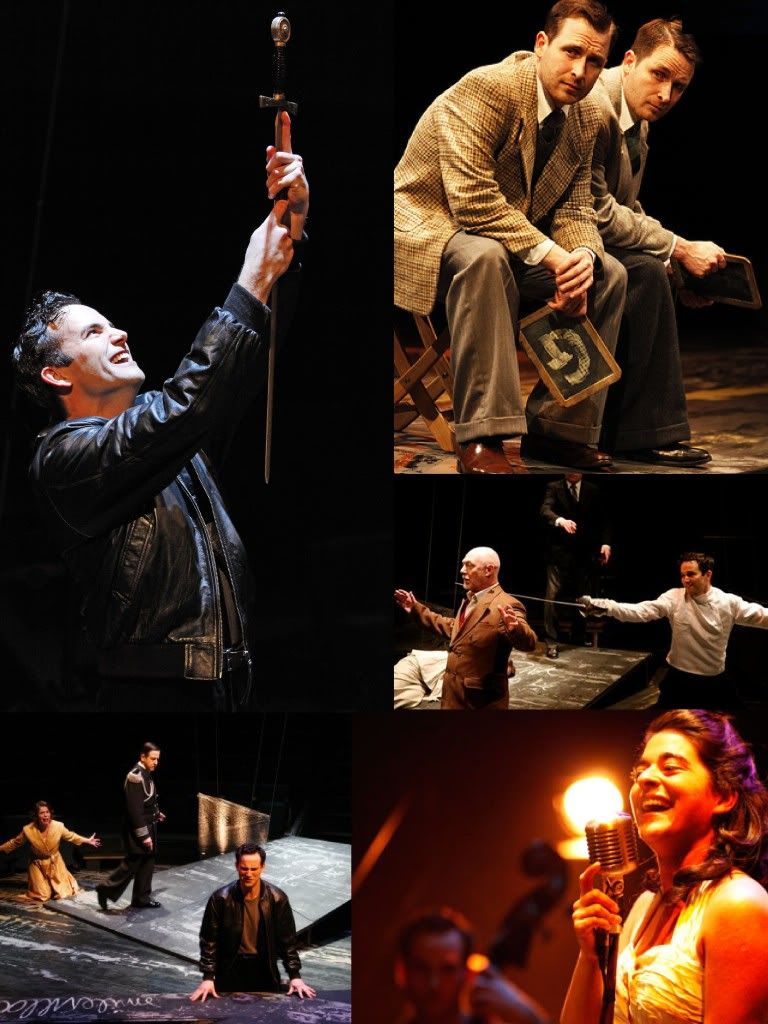I went into this production with high hopes – I’d heard good things, the trailer was exciting and I loved the idea of seeing another 1940s Hamlet. Unfortunately mostly, though not entirely, I was disappointed. Partly this might have been the still lingering effects of the marvellous Hamlet 1603 and the slight feeling of pantomime the production left me with, certainly might have been down to moving from the intimacy of the White Bear to the relative grandness of the Rose Kingston – it made everything seem too big and grand and performed.
Sadly though I think the problems with the production lay much deeper than a change in venues. It simply felt too shallow to me. This was best represented for me in the use of twins David and Richard Colvin to play Rosencrantz and Guildenstern, unfairly in many ways as both actors gave a good performance – but I felt cheated because it was only one performance. I am always baffled by the perception that Rosencrantz and Guildenstern are interchangeable, the text highlights their individuality, so this twinning of performance came to represent the bigger problem. (There has only been one occasion when I’ve enjoyed this mirroring of the characters, in the RSC Young People’s production where it made sense due to the streamlining and vaudeville approach used and in a strange twist of fate the actors playing Rosencrantz and Guildenstern on that occasion, Dyfan Dwyfor and Gruffudd Glyn, were also watching the play that night).
It felt as if it had accepted too rapidly the surface understanding of the play – without challenging it or digging deeper. They explored their concept rather than the text and I think it suffered for that. And whilst Nick Shaw did a fine job of playing Hamlet, with a Richard Burton-esque twang to his pronunciation, it felt strongly like he lacked both the stage presence and the deep understanding of the part to be truly compelling.
I did greatly enjoy the 40s aesthetic and for the feel that the dynasty of Elsinore was in fact something of a seedy jazz nightclub – with the performers themselves playing the instruments and Natalie Dew as Ophelia taking centre stage as the singer and star (an idea that especially came to fruition during the later mad scenes, where her singing became an attempt to recapture and rebuild herself). I liked this personalising of the story (though it made the ghost feel out of place) and especially enjoyed Fine Time Fontayne’s performance as Claudius, capturing something of the feel of a Northern club owner – friendly, amiable and a bit dangerous underneath (for some unknowable reason it left me wanting to see a Hamlet with a pre-existing positive Hamlet/Claudius relationship).
Though there were certainly things I liked about the production (seeing a female Fortinbras was something of a treat), overall this failed to enlighten me or excite me. A real shame.

No comments:
Post a Comment